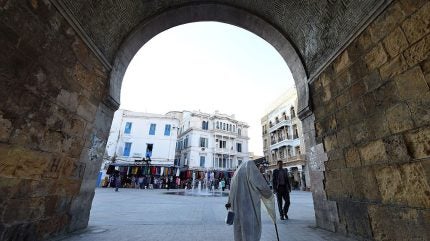

Although Tunisia is widely considered to be the only democratic success story of the 2011 Arab Spring revolution, the country has suffered from political and economic instability ever since – not to mention a spate of terrorist attacks.
This has impacted foreign direct investment (FDI) to the country, but not too much. It seems that the global financial crash of 2008 has played an equally large, if not larger, role in dampening investor appetite.

Discover B2B Marketing That Performs
Combine business intelligence and editorial excellence to reach engaged professionals across 36 leading media platforms.
FDI to Tunisia has not returned to the historic highs witnessed between 2005 and 2009. Since then it has gradually and almost inexorably decreased, hitting $845m in 2018, according to data from the UN Conference on Trade and Development (UNCTAD) World Investment Report 2020.
The past few years have actually seen a slight uptick in foreign investment, as business confidence recovered with the end of terrorist attacks – as evidenced by the growing number of international tourist arrivals in recent years. However, Covid-19 looks likely to set this gain back again.
Strength and weakness for investment in Tunisia
Tunisia’s FDI intake stacks up well against its most competitive neighbour, Morocco, a country with a population three times as large as Tunisia. Morocco has not attracted a significantly larger amount of FDI than Tunisia over the past decade, according to Investment Monitor’s analysis of UNCTAD data.
The main investors in Tunisia are the United Arab Emirates, France, Qatar, Italy and Germany. Other than its well-educated, multilingual workforce, one of Tunisia’s key assets is its proximity to Europe, sub-Saharan Africa and the Middle East. It also has free trade agreements with the EU and much of Africa.

US Tariffs are shifting - will you react or anticipate?
Don’t let policy changes catch you off guard. Stay proactive with real-time data and expert analysis.
By GlobalDataThe majority of FDI to Tunisia in 2019 went to industry, followed by energy and services. In terms of FDI stock, manufacturing is the sector that attracts most investment (and by a significant amount), followed by tourism and telecommunications.
Foreign investment to the country would certainly come in larger swathes were it not for certain bureaucratic barriers. “State-owned enterprises are a major player in the Tunisian economy and several sectors remain closed to foreign investment,” says analysis from Nordea, a leading provider of international market information. “The informal sector, estimated at between 40% and 60% of the overall economy, is still a concern since legal businesses are forced to compete with smuggled goods.”
On the other hand, improvements to the country’s overall investment climate have been made. “In recent years, the Tunisian government has carried out necessary structural reforms to improve the country’s business climate, including an improved bankruptcy law, an investment code and an initial ‘negative list’, and a law allowing for public-private partnerships,” Nordea adds.
“The government adopted laws allowing businesses to start up more easily (more services are available in a one-stop shop, fees are decreased), registering property is now faster and more transparent, and paying taxes is easier (implementation of a risk-based tax audit system).”
These changes have boosted Tunisia’s standing in the World Bank’s annual Doing Business report, with the country gaining two places. It is now ranked 78th out of 190 countries.



